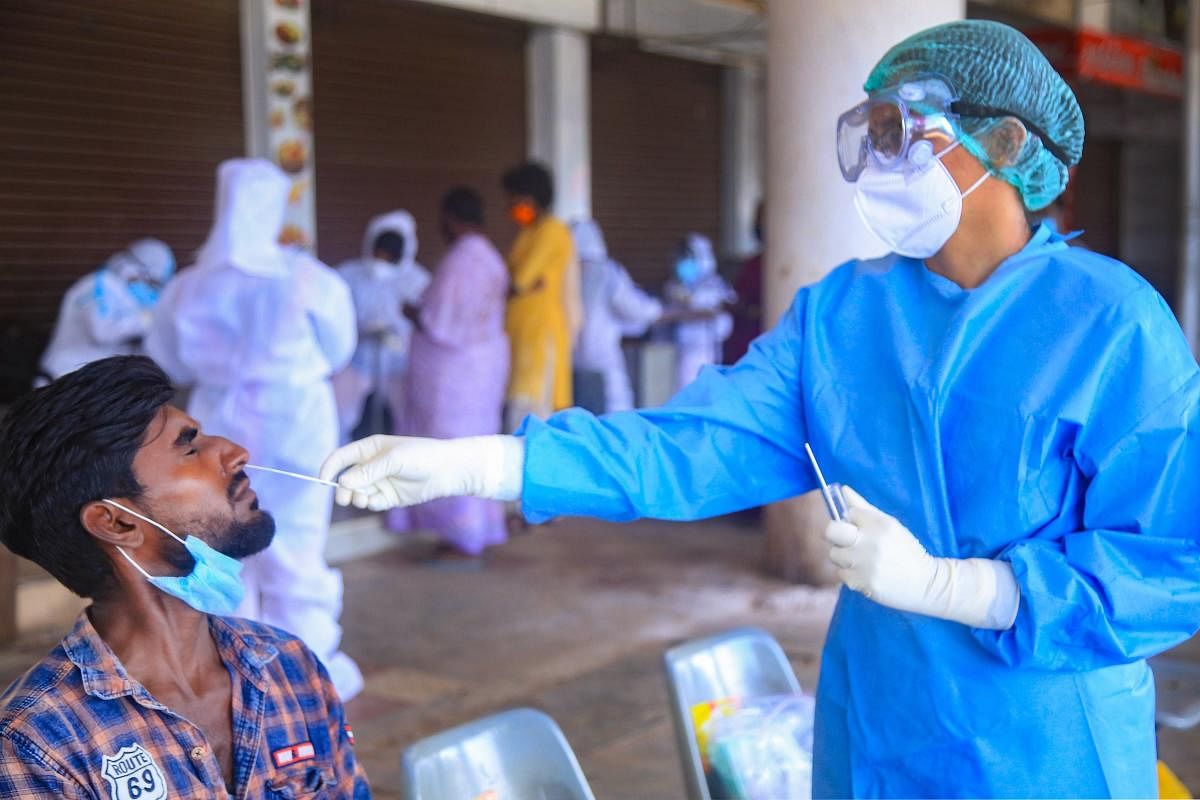
Tamil Nadu may have breached the grim benchmark of one lakh Covid-19 infections, racing to second place in the country behind Maharashtra, but the government says ramped-up testing and early detection are among the factors leading to reporting of such high numbers.
The southern state's numbers as on Friday clocked a total of 1,02,721 with 1,385 deaths, while recoveries stood at 58,378. The recovery rate is 57 percent. Around 12.70 lakh samples have been tested so far, the numbers being 35,028 on Friday.
Follow live updates on the coronavirus here
The state's fatality rate is 1.3 percent. Among the many infected include state Higher Education Minister K P Anbalagan. DMK legislator J Anbazhagan, who had tested positive for the deadly virus, died early in June.
When health minister Dr C Vijayabaskar took to Twitter to announce the first coronavirus case in Tamil Nadu on March 7, an engineer from Kancheepuram with a travel history to Oman, little did people imagine the state would register over one lakh cases in a little less than four months.
Tamil Nadu seemed comfortable then as neighbouring states like Kerala saw a spike in coronavirus cases.
Though the state reported lower daily increase initially, with the government having high hopes of reversing the trend soon, things changed and the numbers started galloping after two clusters---the Tablighi Jamaat members, and the Koyambedu wholesale market, started redrawing the Covid-19 situation in the state.
The government said many cases were imported from other states and countries too. Though initially, Chennai with its medical infrastructure and size of the population contributed to the high caseloads, other parts in Tamil Nadu too started reporting cases since June.
Incidentally, Chennai tops the virus chart with 64,689 cases so far. The government has said the density of population is an important factor for the rapid spread of the pandemic in the city.
Also Read: Short timeline for India Covid-19 vaccine test raises doubts among health experts
At present, Chennai has 158 containment zones, 50 of which are in Tondiarpet and 43 in Anna Nagar, two of the worst affected areas in the city. Tamil Culture minister K Pandiarajan, entrusted to oversee the work in Tondiarpet, told PTI that "the 2,200 strong field team and the mantra of the Chief Minister (K Palaniswami) to align five Ts - Trace, Track, Test, Treat and Tech-- have helped to increase the recovery rate and brought down the fatalities (in the city)."
Chennai's neighbouring districts--Kancheepuram, Chengalpetand Tiruvallur, besides Madurai, are the other districts with high virus caseloads. These districts are presently under intense lockdown to curb the spread of the contagion, although curbs will continue with some relaxations from July 6.
Though the state has been reporting high daily tally for the past many days, the government insists that there is no need for panic. "The spike in cases should not make one panic and Chennai's slums need not be compared with those in Mumbai," (another high prevalent zone), according to Health secretary J Radhakrishnan.
"The chief minister's strategy of aggressive and increased testing has led to an increase in cases. The state's focus is to reduce its fatalities. Tamil Nadu has a fatality rate of 1.3 per cent, which is low compared to the national average of 2.9 percent," he said.